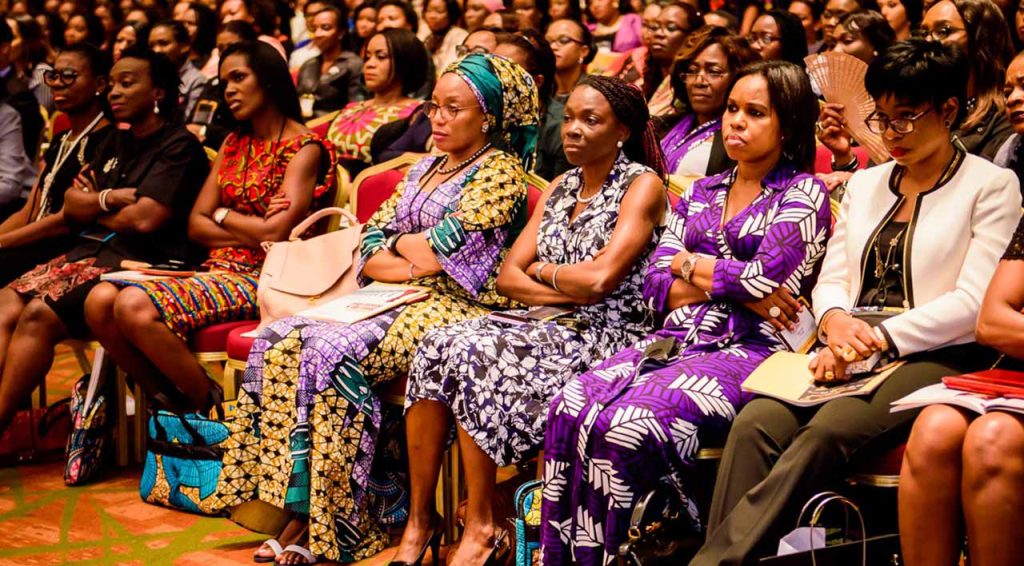In Nigerian politics, male dominance has historically characterised governance and public service. However, recent times have seen a rising call for greater female inclusion.
This movement aligns with principles of equality and democracy and has the potential to transform governance.
Unfortunately, women’s underrepresentation in politics is undeniable, particularly evident in the 9th National Assembly, where a mere 5.2 per cent of seats were held by women. And in the 10th Assembly, the results of the elections showed a general decline in female representation at the National Assembly.
378 women ran for various seats in the 2023 Senate and House of Representatives elections, but only 17 were successful.
Various reports from 2022 show that women’s political participation in Nigeria remains at 6.7 per cent in elective and appointive positions, which is far below the global average of 22.5 per cent, Africa regional average of 23.4 per cent and West African subregional average of 15 per cent.
In a country where half of the population is female, historical gender disparities persist in politics. Since the nation’s 1960 independence, only one woman briefly held a top leadership position, serving as a speaker for five months in 2007, with no female governors elected.
The global call for gender equality resonates in Nigeria, as active female participation in political decision-making is proven to champion diverse societal needs and foster inclusivity.
Beyond moral considerations, gender-balanced politics has economic benefits, with studies showing that it correlates with sustainable growth by prioritising key sectors like education and healthcare.
President Bola Tinubu’s commitment
The beginning of a new administration brings to the forefront a question that resonates deeply within the realm of gender equality: Will the narrative for women in Nigerian politics undergo a transformation?
In the wake of his inauguration and following his official swearing-in, President Bola Tinubu made a resounding commitment to prominently feature women and youth in his administration, setting a course for potential change.
During his inaugural address, he referenced his party’s manifesto, outlining a pledge to ensure robust representation of both women and youth.
Notably, the manifesto emphasises that key senior positions within the Federal Executive Council will be reserved for women, and the private sector will be encouraged to echo this commitment.
President Tinubu, therefore, articulated a comprehensive strategy, signalling his intention to collaborate closely with the National Assembly.
The objective is to enact legislation that actively promotes female employment across all governmental spheres, including offices, ministries, and agencies. This progressive move aims to elevate women’s participation in government roles to a commendable minimum of 35 per cent.
However, the reality presents a juxtaposition that must be acknowledged. Despite these proclamations and aspirations, the recent submission of 48 ministerial appointments by the President to the Senate for approval is not so promising. Of these appointments, only a paltry nine women—constituting a regrettable 19.1 percent—have been included in the nominations.
Meanwhile, out of these nine women, merely seven (14.8 per cent) have received the Senate’s endorsement. This modest number stands as a stark reminder that progress toward gender inclusivity in politics is not achieved overnight but necessitates consistent and strategic efforts.
Token representation is no longer sufficient
While it remains too early to definitively assess the current administration’s commitment and approach to advancing female inclusivity in Nigerian politics, these initial indicators hold great importance. The words spoken and the policy intentions declared in moments of inauguration must translate into tangible actions that reshape the landscape of representation.
As the journey towards achieving gender parity in politics unfolds, it’s crucial to maintain a vigilant eye, both on the strides made and the work yet to be accomplished.
The spotlight remains on the promise to bring about meaningful change for women in Nigerian governance, a commitment that holds the potential to redefine not only the nation’s political narrative but also its socio-cultural fabric.
The clarion call for female inclusivity in Nigerian politics echoes beyond the chambers of power—it resonates with the aspirations of a nation eager for progress and equality.
Token representation is no longer sufficient; Nigeria must foster an environment where women’s voices are not just heard but actively integrated into the nation’s decision-making.
